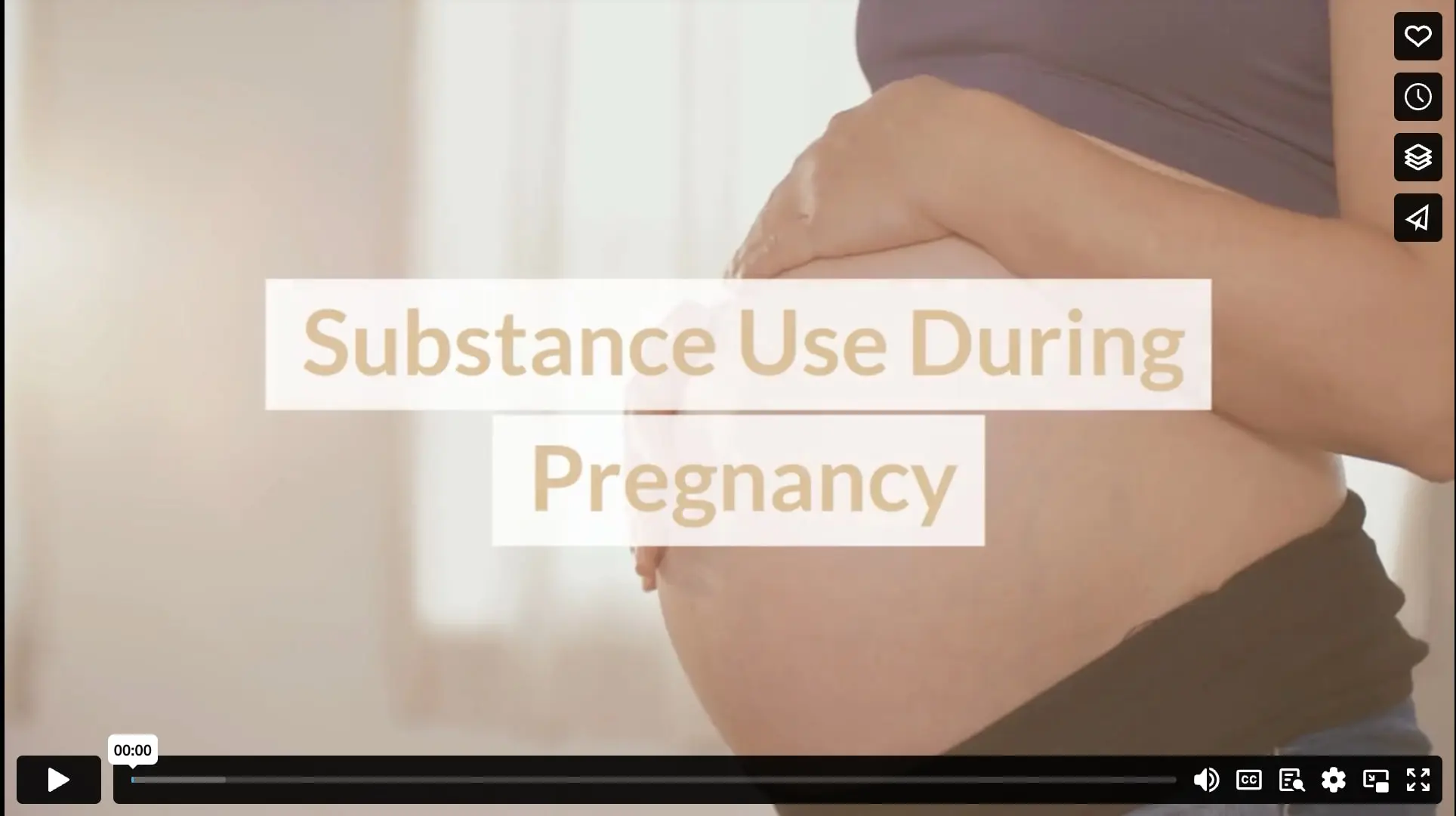Using drugs and alcohol while pregnant can be harmful to the mother and the baby for many reasons. Drug use during pregnancy has been linked to miscarriage, premature birth, low birth weight, disabilities, sudden infant death syndrome (SIDS), and neonatal abstinence syndrome (NAS or infant withdrawal symptoms).
Why is drinking and drug use a problem? What do infant withdrawals look like? What can you do to get clean to protect yourself and your baby?

(freepik/Freepik)
The Problem of Drinking or Using While Pregnant
Nutrition: Mothers on drugs and or alcohol often experience reduced appetite. As a result, they may not get a wide variety of nutrients in the right quantities to maintain their health, let alone grow another human.
Additionally, substance use can limit key nutrient absorption necessary for proper baby development:
- Vitamin C
- Vitamin B
- Vitamin A
- Copper
- Folate
- Amino Acids
So, the nutrients the mother does ingest won’t necessarily go where they need to for the mother’s and baby’s health.
Formation: Ingested nutrients are the building blocks of the baby’s brain and cognitive development, organs, bones, muscles, and skin. If nutrients aren’t available through food sources, the mother’s body will metabolize parts of itself to provide for the baby, creating additional nutrient deficiencies in the mother. Once those reserves are gone, both baby and mother suffer the effects of malnutrition.
Addiction: The baby may run the risk of getting addicted to the same substances the mother is addicted to. This happens because drugs and alcohol may cross the placenta to expose the baby. If the mother is still using when she has the baby, the baby may go through withdrawals after birth when they are cut off from their mother’s blood supply.
Withdrawal: A baby’s withdrawal symptoms may start as early as 24 hours after birth to 10 days, depending on the type of drug, length of exposure, the amounts ingested or used by the mother, and how often. Symptoms may include:
- Trembling or shaking
- Excessive crying and difficulty finding comfort
- Difficulty sleeping
- Tight muscles
- Extreme reflex response or twitching
- Respiratory distress
- Seizures
- Sinus issues
- Difficulty eating
- Diarrhea
- Vomiting
- Profuse Sweating
- Inability to regulate temperature
Withdrawal symptoms for mother and baby can be life-threatening. They are better managed in the hospital, where doctors can administer medications to wean the mother and baby off the drugs rather than going cold turkey. This gradual weaning and the use of medications can offset the painful side effects of withdrawal.
Seeking Help Sooner Rather Than Later
The mother should seek help sooner rather than later and enter a program with medical doctors who can oversee the detoxification process. Medical professionals can ensure both mother and baby are getting the proper nutrition, administer medication to minimize discomfort, and promote healthy growth for the baby. Mothers taking medication to help with their withdrawal symptoms have a better chance of having a baby born at a healthy weight. Recovery for the baby, in or out of the womb, will also be easier with less exposure to the drug or alcohol.
DO NOT STOP COLD TURKEY ON YOUR OWN. The process of getting clean is challenging enough with the proper resources. Going cold turkey can be dangerous. If the mother or the baby does have a life-threatening reaction, it may take too long to get help, and the mother could lose their life or that of their child.
What if a Baby is Born with Neonatal Abstinence Syndrome?
Hospital care: If a child is born with NAS, there are ways to help.
- The baby is given an IV to help maintain hydration in case of diarrhea or vomiting.
- The baby is given a higher calorie formula or nursed every time they express hunger, as they will have more trouble gaining weight.
- Swaddling (snugly wrapping them in a blanket) will help them feel secure.
- Skin-to-skin care can improve the baby-family connection and offer much-needed comfort.
- The doctor may administer the drug they are having withdrawals from to stabilize their condition, then carefully wean them off all illicit substances.
Home: The baby will be sent home when they can eat, poop, sleep, put on weight, and respond appropriately to tests. Once home, it will be important to know the following:
- The baby may have developmental issues. Regular doctor visits will promote healthy growth and alert you to any delays your baby may be experiencing.
- If the baby starts missing milestones, you can intervene early by putting them in the proper therapies to compensate.
- The baby may be more prone to addiction, so it is best if they avoid addictive substances throughout their life.
Wrap Up
If you are pregnant and using drugs or alcohol, you should seek out a women’s drug and alcohol treatment center immediately. Your little one is counting on you. The sooner you get help, the better off you both will be. If you’re in the area, you can join us at our women’s substance abuse treatment programs in Idaho or google “women’s residential treatment programs near me.” Addiction is beatable, and you have the strength needed to get healthy for you and your baby.
Video
Infographic
Using drugs and alcohol during pregnancy can harm both the mother and the baby for various reasons. Continue reading to learn about the risks of drinking or using drugs while pregnant in this infographic.


